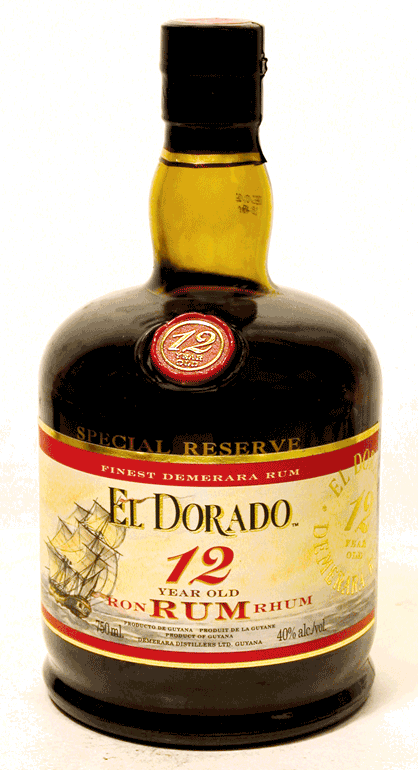 Rum from non-US Caribbean countries under threat in US
Rum from non-US Caribbean countries under threat in US
Rum-producing countries of the Caribbean Community and Common Market (CARICOM) may have to take the US to arbitration at the World Trade Organization (WTO, unless diplomatic efforts settle a looming problem before it concretizes.
At stake is rum production in several CARICOM countries together with the foreign exchange earnings and employment that it generates.
The problem has not arisen out of direct action by the US government. It has originated in Puerto Rico and the US Virgin Islands both of which have been long-time rum producers in competition with CARICOM manufacturers. But, now, these two US affiliates are taking advantage of US government refunds to them of excise taxes on rum to subsidize rum production and marketing. The vast increase in rum exports to the US mainland, at a subsidized cost, would squeeze-out CARICOM rums; and subsidized marketing would make it virtually impossible to compete.
The US Virgin Islands, adversely affected by the closure of the oil refinery on St Croix, is desperate to create opportunities for employment and economic growth, and it has hit upon the idea that it could use the refund of the US excise taxes to lure large rum producers by offering them huge incentives and subsidies. The USVI government has not been above using the refunded taxes to poach rum producers from Puerto Rico resulting in that island’s government protesting to the US Congress.
Thus, a contract in the USVI with one big company alone will add 20 million proof-gallons of rum production capacity in the region – more than 50% of the current U.S. market. Moreover, known and reported subsidies to other producers in the USVI and Puerto Rico are resulting in additional new capacity for existing facilities. The enlarged production from this new capacity will affect not only the US market, but other world markets as well, since the US cannot absorb all the rum that can be produced at these new or expanded subsidized facilities.
If the USVI and Puerto Rico are allowed to continue to use the US mainland’s refund of the excise taxes to subsidize both the building of greater rum producing capacity and marketing, the US, by allowing it, would be in violation of WTO rules in three ways. These are: Article 3.1(a) of the WTO Agreement on Subsidies and Countervailing Measures (SCM Agreement) which prohibits all subsidies that are “contingent, in law or in fact, whether solely or as one of several conditions, upon export performance”; while GATT Article III:8(b) does permit WTO Members to provide subsidies exclusively to domestic producers, the WTO Appellate Body has already ruled, in previous cases, that this exception does not justify subsidies that amount to the direct remission of excise taxes to domestic producers. Thus, the USVI contracts cannot be defended under this provision; and Article 5 of the SCM Agreement prohibits WTO Members from using actionable subsidies to cause “adverse effects to the interests of other Members.” Because all the subsidies in the USVI contracts are specific to the rum industry, they meet the test of being “actionable” subsidies. Additionally, the magnitude of the subsidies is so large – approaching 100% of the cost of production in some cases – that the subsidies are certain to cause substantial competitive harm to the rum industries in CARICOM countries.
Rum-producing CARICOM governments would have little option but to file for a dispute settlement with the US at the WTO. The governments could not sit by idly while CARICOM rum producers lose their market share in the US mainland due to unfair subsidies, and probably face collapse with consequential foreign exchange and job losses. But, the WTO process would a long and costly exercise for all the governments concerned.
This, of course, highlights the inadequacy and unfairness of the WTO remedies for developing countries when its rules are violated by rich nations. But, that is another issue.
The record of the rich US at the WTO in relation to the interests of small CARICOM countries – on bananas and internet gaming – has been harmful. Additionally, the US has made no major contribution to economic development in CARICOM countries in recent times. If this is official US policy, it is perplexing. If it is an accidental position it needs correction. For, unless the US has decided to leave Caribbean development – and therefore co-operation and mutual assistance – to others, the Caribbean could become unhelpful to US goals. This would be a shame given the long and traditional links and values that the US and the region share and which could be strengthened and expanded.
There is a clear need for renewed and improved relations between the US and CARICOM countries particularly in economic matters that improve the areas and levels of aid and investment.
The current situation over rum offers a special opportunity for all the players to come to the table to discuss how the rum market in the US mainland can be shared in a mutually beneficial way. In particular, CARICOM Foreign Ministers and Trade Ministers and the US Secretary of State and US Trade Representative should hold meaningful discussions on how best to avert a WTO case, while addressing the issue of no unfair advantages to producers in the USVI and Puerto Rico.
If they fail to do this, relations between the US and CARICOM will sour with the Caribbean once again feeling let down.